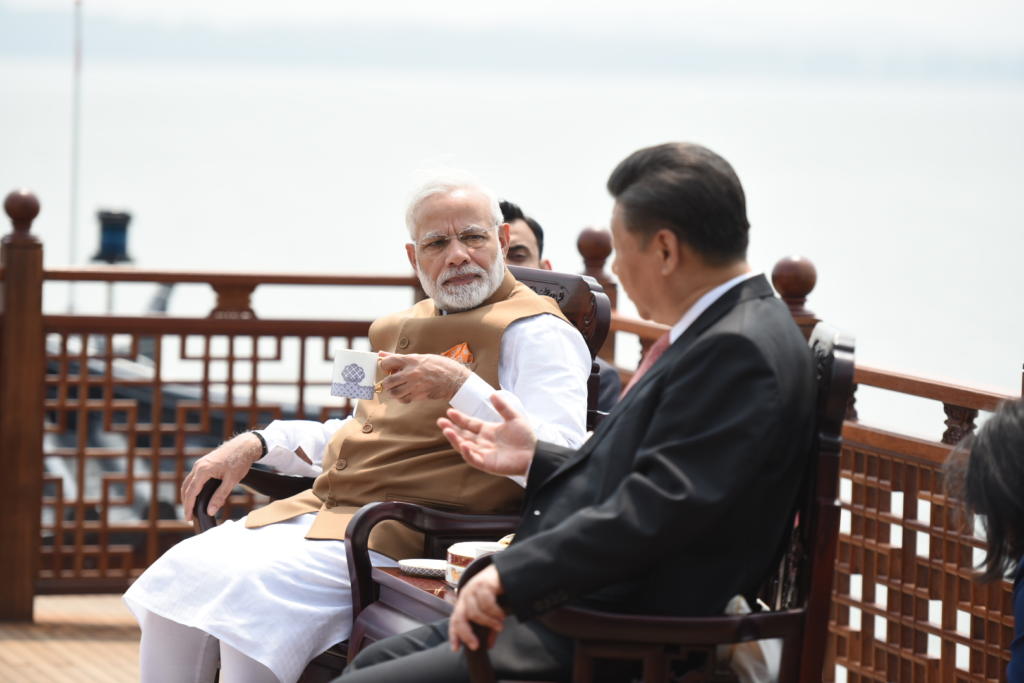From a passive regional power to a proactive global partner, India’s foreign policy has undergone a massive shift over the past few years. This proactive change is clearly evident in the Indian stance against China’s Belt and Road Initiative (BRI). Recently, replying to a question in Lok Sabha, V Muraleedharan, the Minister of State for External Affairs expressed strong reservation against the BRI and China Pakistan Economic Corridor (CPEC). Highlighting India’s offer of soft loans for several development and capacity building projects across continents, MoS has given an insight into India’s plan to counter China’s BRI.
“Extension of Government of India (GoI) Lines of Credit (LoCs) on concessional terms is an important component of this development partnership in diverse areas of socio-economic development such as power, transport, connectivity, agriculture and irrigation, manufacturing industries, water and sanitation, healthcare,… As part of the GoI LoC programme, 279 LoCs have been extended to 63 countries of Asia, Africa, Latin America, Caribbean, Oceania and Commonwealth of Independent States worth nearly $28 billion,” Muraleedharan informed the Lok Sabha.
He also added that 54 projects aggregating nearly $4.70 billion have been completed, while 194 projects worth nearly $19 billion are under implementation. LoCs enable India to be a part of major projects in the countries without posing a threat of a debt trap, which many nations have called out for China’s Belt and Road Initiative.
India’s neighbours have been the biggest beneficiaries of India’s robust development cooperation agenda especially maritime neighbours like nations in South Asia and Africa. In 2017 India had announced the extension of a $4.5 billion line of credit for development projects in Bangladesh and another $500 million for defence hardware purchases for Dhaka in efforts to deepen political and strategic ties between the two neighbours. Development projects are spread across various domains like Electronics, Information Technology, Cyber Security, Space exploration, Civil Nuclear Energy, and others.
India has also kept a sharp focus on developmental programs for African nations. In the founding Conference of International Solar Alliance in March 2018, India announced 27 solar power projects spanning across 15 nations out of which 13 countries were from the African sub-continent. The total value of the projects is estimated to be around $1,392.48 million. Benin, Burkina Faso, Chad, Democratic Republic of Congo, Ghana, Guinea, Mali, Rwanda, Seychelles, Tanzania and Togo are among the countries where solar projects are proposed. The change in focus from traditional areas of co-operation like IT, pharmaceuticals and others to sustainable development projects in line with the MEA’s decision to earmark 15-20% out of the total $10 billion LoC, extended under Third India-Africa Forum Summit (IAFS-III) for undertaking solar energy projects in Africa.
With more nations feeling the heat of China’s strong-arm debt traps, growing economies are preferring partners like India to meet their developmental requirements, which does not pose any threat to the sovereignty of the state. China’s takeover of strategically located Hambantota port in Sri Lanka is a striking example of how China uses its ‘developmental assistance’ to growing economies as a tool to hamper their sovereign interests. Under heavy pressure and continually building up debt burden, the Sri Lankan government had to hand over the port and 15,000 acres of land around it for 99 years in December.
The Indian government has also reiterated its position on China-Pakistan Economic Corridor (CPEC) which is a part of the BRI and said that the project shows lack of appreciation for India’s “territorial integrity”.
“The inclusion of the so-called ‘China-Pakistan Economic Corridor’ (CPEC), which passes through parts of the Indian state of Jammu and Kashmir under illegal occupation of Pakistan, as a flagship project of ‘OBOR/BRI’, reflects lack of appreciation of India’s concerns on the issue of sovereignty and territorial integrity,” the minister said.
Outlining India’s efforts and contrasting China’s BRI, Muraleedharan also added, “At the same time, Government is of the firm belief that connectivity initiatives must be based on universally recognized international norms. They must follow principles of openness, transparency and financial responsibility and must be pursued in a manner that respects sovereignty, equality and territorial integrity of nations.”
